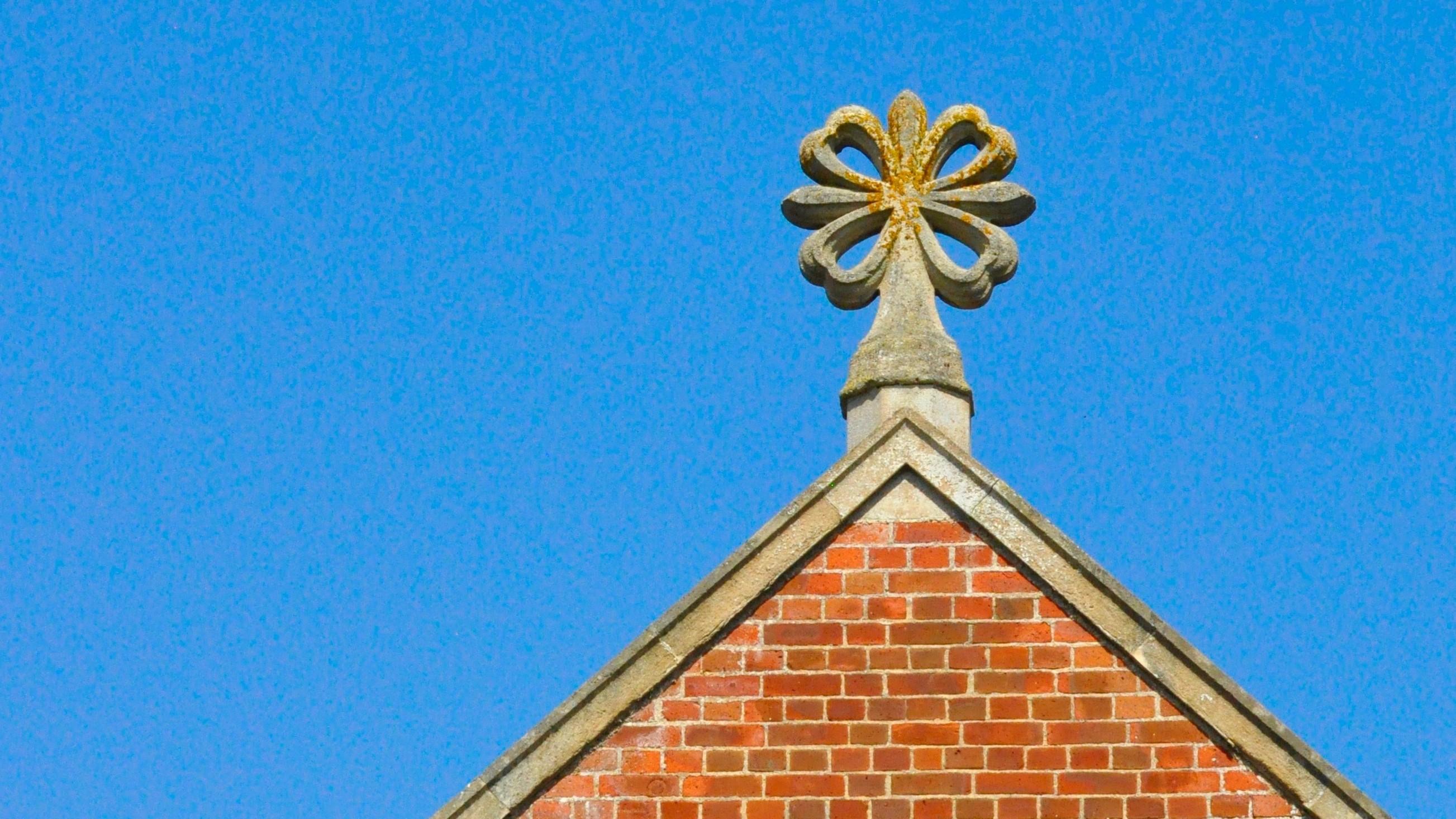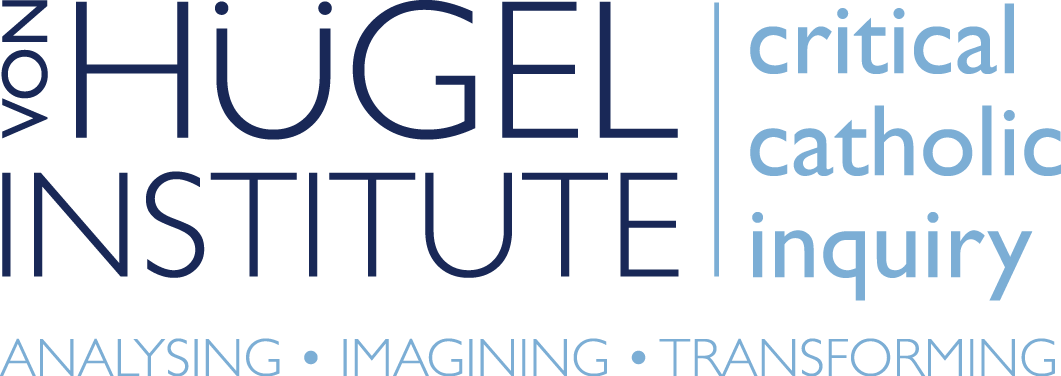
The VHI was founded in 1987 to ‘preserve and develop’ the Catholic traditions of St Edmund’s College, Cambridge. After more than thirty years of proven service it now intends to consolidate and relaunch its mission: to become the first Institute of Advanced Studies in Europe inspired by a catholic worldview, and to create a home for critical catholic inquiry in the heart of the University of Cambridge.
As academic work is becoming increasingly fragmented and culture more polarized, the Von Hügel Institute for Critical Catholic Inquiry wants to be:
- catholic by promoting research and action across all disciplinary borders, always connecting the particular and the universal, the descriptive and the normative, the practical and the theoretical;
- critical by analysing the good, the true and the beautiful wherever they are to be found, in and through reasoned and searching dialogue with all;
- transformative by inspiring imaginations to have a measurable impact on real lives in the pursuit of a better shared global future.
There is now considerable interest across the academy—both sciences and humanities—in the resources of the Catholic intellectual, cultural and ethical traditions which have sustained, challenged, and stimulated societies around the world for two millennia. Now is the time for intensive, intellectually principled yet expansive interdisciplinary research critically exploring and developing the Catholic worldview. In wider society too, curiosity about Catholicism is at an all-time high in Pope Francis’ pontificate. That worldview aims to consider reality in all its inter-connected variety. It seeks to link up all aspects of knowledge and practice in a differentiated unity. The very word Catholic comes from the Greek kath holou – according to the whole, the universal: seeing all elements and dimensions of reality in their underlying unity and in service of the common good—seeing in the round. Catholicity thus favours conjunction over disjunction, union over division. It distinguishes in order to unite. It considers reality through the broadest possible lens. Universities – from the Latin universitas, or the universal – were founded on just this kind of joined-up optic.
Such integrated ways of thinking are needed precisely now when universities are realising how perilously fragmented and self-referential their knowledge and work can be under the pressure of relentless specialisation and commodification. We need research institutes which cultivate intellectually principled inter-disciplinarity and joined-up thinking: the Catholic traditions at their best do precisely that.
The intellectual foundation of that unity, considered theologically in the Catholic worldview, is the unity of God and creation, found paradigmatically in Christ. But considered from the point of view of the universe and our place in it, that unity is seen through the qualities, relations and interconnections of the dazzlingly diverse variety of the world we inhabit.
Catholic traditions have maintained the 'convertibility of transcendentals', which is to say the identification of manifestations of beauty, truth, and goodness—aesthetics, knowledge, ethics—with being itself, and therefore God. Expansive, metaphysical reflection forms of reflection—philosophy, theology, ethics—enable us to perceive the underlying differentiated unity of all things.
This means that the VHI of the future will research, develop, and facilitate practices of thought which integrate these plural aspects of the unity of the world. The specialised, intentionally narrow, analytic thought patterns of the modern university need to be constructively supplemented with conjunctive modes of thought which realise and promote the underlying unity between the descriptive and the normative, between the strictly academic and the social and ethical, between reality observed and reality lived—reality as it is and reality as it could be.
The VHI of the 21st century will help put the universitas back into the university, and catholicity back into the church.
There is no such thing as neutral or disinterested knowledge. Thus the VHI will retain its strong commitment to the venerable tradition of Catholic social thought, while at the same time leading that tradition’s rethinking for today’s very different globalised world. In our present ecological context this integral link between analytical knowledge and ethical practices will lead to an increasing emphasis on research which promotes long term sustainability through all the disciplines making up the modern worldview, from art to astrophysics. The interconnected worldview of catholicity necessarily always works for the common good.
The institute will promote projects which explore conjunctive, integrating dynamics and concepts, which cross interdisciplinary borders, especially ones which bring humanities and the various sciences into greater dialogue and collaboration for the common good. It will always be keen to underline the connections between the descriptive and the normative, to foster their greater integration, and to critique their false disjunctions.
Thus it is not just a matter of inter-disciplinarity between different disciplines, but between different kinds of disciplines; not just more angles on a topic, but different dimensions: the micro and the macro, the theoretical and the practical, the descriptive and the ethical. Catholic thought is essentially and paradigmatically poly-systematic. The Institute will be a resource for the academy, for society, and for the wider church, challenging each to ever more transformative and inclusive, or catholic, ways of thinking and acting for the universal good.


